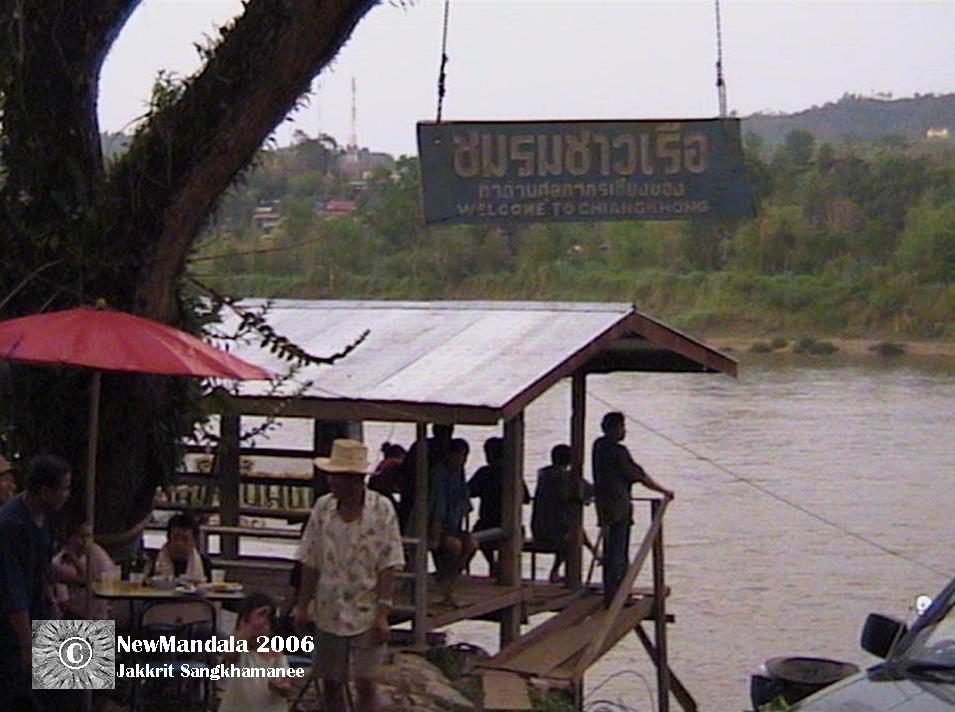In The Legend of the Golden Boat, Andrew Walker spends a whole chapter talking about the significance of a small local port in Chiang Khong district of Chiang Rai (Thailand) in relation to its local authority in the Lao long-distance river trading regime. Standing at the Wat Luang port, Walker revealed the active role of local regulation during the period of liberalisation of border trade.
Before the construction of a new deep-water port, Wat Luang port was a significant location for the operation of local Thai cross-border boats between Chiang Khong and Houaysai (Laos). During the peak business period, the port would be filled with more than 40 small cross-river boats busy crossing the border every weekday carrying Lao traders to Thai soil and returning with loads of purchased products for sale and household use. The boat operators even established their own Wat Luang Boat Operators’ Association to increase their organisational efficiency and bargaining power with customers and state authorities. The Boat Operators’ Association, Walker argued, was a significant actor in regulating river-trade activities at the local border before the coming of the GMS regime of regulation. Walker went so far as to claim that the Wat Luang port can demonstrate the “micro-regulation” of the national border through which local actors can actively participate, collaborate and manipulate the intricately-woven and locally-specific relations with state authorities to the benefit of their local landscapes of power.
The picture of Wat Luang port today is, unfortunately, totally different from that portrayed in the good old days of the mid 1990s. From my observation and several in-depth discussions with the remaining local cross-border boat operators, it was found that the number of operators has dramatically decreased to only a few each day. Often I encountered only two to four boat drivers hanging around at the port waiting to cruise a random trip across the border. Most of the boat operators have given up their business and turned to find other ways of making a living. The port today is a very quiet and rarely socialized sphere, quite different to how it was previously described in The Golden Boat. And, of course, the negotiating power has completely evaporated. What made the Wat Luang port become merely a “legend” of “micro-regulation”? A brief explanation will follow in my next post.
(Go to Golden Boat update 1.)
 Facebook
Facebook  Twitter
Twitter  Soundcloud
Soundcloud  Youtube
Youtube  Rss
Rss 